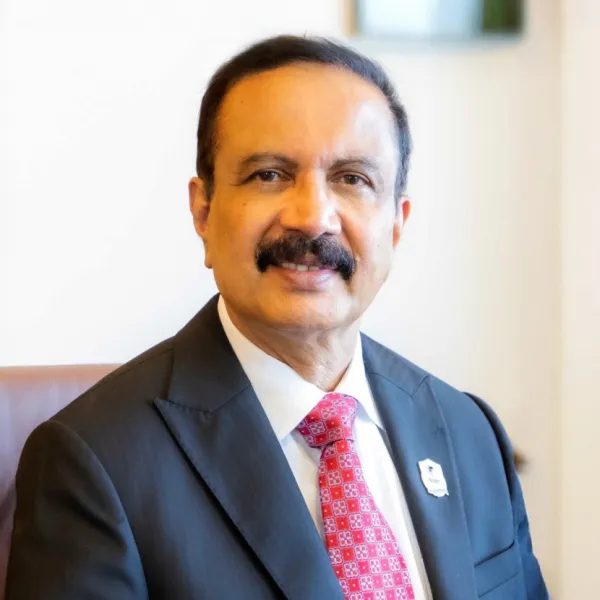Why Tech Adoption is A Long-Haul Flight for Indian Hospitals

Integrating advanced technology into healthcare holds immense potential for enhancing patient care, improving operational efficiency, and reducing clinical errors in Indian hospitals.
From urban multi-specialty institutions to rural primary healthcare centers, there is a growing recognition of the benefits of digital health solutions, electronic health records (EHRs), telemedicine, and advanced medical equipment.
Despite these advancements, the journey toward widespread technological adoption is fraught with significant challenges that require careful consideration and strategic planning.
Infrastructure Limitations
Infrastructure is the foundation for technological advancements in healthcare, yet Indian hospitals face pervasive challenges such as unreliable electricity, limited internet connectivity, and outdated physical facilities. These deficiencies pose substantial barriers to integrating digital health solutions effectively.
"Infrastructure limitations remain a formidable challenge," noted Shweta A Bhatnagar, Head-IT at Symbiosis International University. She elaborated, "Issues like unreliable electricity and limited internet connectivity hinder the seamless integration of digital health solutions across hospitals, especially in rural areas where these services are not consistently available."
Krishna Mohan Avutapalli, CIO of IHH Healthcare, highlighting the financial challenges of adopting digital technology, said "Financial constraints are often a consideration but should not be a limitation for system implementation. It's about prioritizing and finding innovative solutions within existing budgets."
For instance, implementing EHRs necessitates robust IT infrastructure to ensure secure and accessible patient data management.

Financial Constraints
Financial limitations significantly influence the adoption of new technologies in Indian hospitals. Limited budgets restrict investments in state-of-the-art systems and equipment that could otherwise enhance patient care and operational efficiency.
"Financial constraints are a pervasive challenge," said Bhoopendra Solanki, CIO of Sakra World Hospital.
He emphasized that a proper budget allocation aligned with business processes is crucial for effective technology implementation. It's not just about initial costs but also sustaining these technologies over time.
High initial costs, ongoing maintenance expenses, and uncertain ROI deter many hospitals, particularly smaller facilities, from adopting advanced technologies.
While larger urban hospitals may navigate these challenges more easily, equitable access to technological advancements remains a pressing issue across the healthcare sector.
Skilled Resource Deficit
The shortage of skilled professionals effectively utilizing advanced healthcare technologies poses a significant hurdle in Indian hospitals. Insufficient training and professional development opportunities exacerbate these challenges.
"The deficit in skilled resources is a critical issue," said Bhatnagar.
She noted the importance of training, saying, "Even with cutting-edge technologies, the lack of adequately trained personnel limits their full potential. It's not just about deploying technology but also about ensuring it is optimally used to benefit patient care."
Avutapalli expanded on the matter, discussing organizational culture. He said, "Developing a technology-driven culture within hospitals remains a formidable challenge. It requires investments in training and fostering an environment where innovation is embraced at all levels."
Overcoming resistance to technological change among healthcare professionals requires comprehensive training initiatives and a top-down approach to foster a culture of innovation and adaptation.
Regulatory Hurdles
Navigating India's intricate regulatory landscape presents substantial challenges for hospitals adopting new technologies. Compliance with stringent regulations related to data protection, cybersecurity, and medical device standards adds complexity and cost to implementation efforts.
Bhatnagar talked about how regulatory hurdles are a critical consideration. She highlighted how diverse regulatory requirements are essential for deploying new technologies securely. As it involves meeting current standards and anticipating future regulatory changes.
Sharing thoughts on cybersecurity threats, Solanki addresses how applications increase the risk of data breaches. “Hospitals must invest in robust cybersecurity measures to protect patient information and maintain compliance with data protection laws,." he added.
Ensuring that healthcare institutions meet ethical and legal standards while using technology to enhance patient care demands careful planning and strong governance frameworks.

Data Security & Privacy Concerns
The digital transformation of healthcare records raises significant concerns about data security and patient privacy. Safeguarding sensitive information against cyber threats is paramount, necessitating rigorous cybersecurity measures and adherence to regulatory mandates.
Solanki outlined proactive measures to ensure data security. Sharing some practical measures, he said, "Implementing measures like Zero Trust and Cyber Insurance are crucial steps to mitigate risks.”
Protecting patient information is vital. Strong data governance and encryption protocols keep data secure from breaches and unauthorized access, ensuring trust in healthcare.
Resistance to Change
Resistance to technological change among healthcare professionals remains a barrier to adopting new innovations. Overcoming this resistance requires targeted educational programs and organizational support to demonstrate the benefits of technology adoption, opined industry experts.
Shedding light on the issue, Solanki said resistance to change is a common challenge. Here, the role of education and leadership is paramount.
Sharing ways to deal with the issue, he said, "Developing a proactive approach to change management is essential. Leaders must champion technology adoption and provide the necessary resources and training to empower healthcare professionals."
While Bhatnagar acknowledged by saying how training programs are vital to fostering a culture of technology adoption and overcoming resistance among healthcare professionals.
Boosting digital literacy and fostering a supportive environment for innovation are vital for helping healthcare professionals adopt new technologies confidently and effectively.
Interoperability Issues
Interoperability challenges between existing health information systems hinder seamless data exchange across departments and healthcare providers. Addressing these issues is essential for integrating diverse technologies and optimizing healthcare delivery.
Per Bhatnagar, "Interoperability remains a significant hurdle." She explained, "Data silos and compatibility issues constrain information sharing across different platforms and healthcare providers, affecting coordinated patient care."
Avutapalli highlighted the need for standardized protocols, saying, "Improving interoperability meant adopting common standards and technologies for seamless communication between systems."
Investments in interoperable solutions and collaborative platforms have effectively enhanced communication between diverse systems, leading to smoother care coordination and improved patient outcomes.
Summing up
Each of these challenges represents a critical barrier that must be navigated to unlock the full potential of technology in Indian hospitals. By addressing infrastructure limitations, overcoming financial constraints, bridging skill gaps, navigating regulatory landscapes, ensuring data security, managing resistance to change, and improving interoperability, healthcare institutions can pave the way for comprehensive digital transformation.
A strategic approach, robust governance frameworks, and stakeholder collaboration are essential for overcoming these obstacles. With concerted efforts and investments in technology and human resources, Indian hospitals can harness innovation to deliver superior patient care, improve operational efficiencies, and achieve sustainable growth in the healthcare sector.
Stay tuned for more such updates on Digital Health News





























